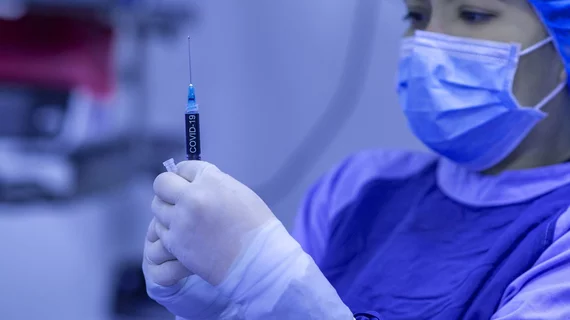Johnson & Johnson scraps RSV vaccine after trial
The Janssen Pharmaceutical Companies of Johnson & Johnson has announced it is exiting the respiratory syncytial virus (RSV) adult vaccine program and discontinuing its phase 3 trial.
The move comes as RSV has been on the rise in the United States, complicating the ongoing COVID-19 pandemic recovery. According to the Centers for Disease Control and Prevention (CDC), the U.S. reports between 60,000-160,000 hospitalizations among adults 65 years and older each year. A RSV vaccine has been anticipated to curb the fast-spreading illness and hospitalizations.
J&J stated that the decision to cancel the RSV vaccine program was part of the company’s overall portfolio strategy when it comes to research and development investments for its pipeline. The company said it is committed to focusing on medicines “with the greatest potential benefit to patients.”
"By periodically refocusing our portfolio, Janssen ensures that we are deeply invested in products that have the power to transform patients' lives," Bill Hait, MD, PhD, executive vice president, chief external innovation and medical officer and interim head, Janssen R&D, said in a statement. "We remain focused on advancing our differentiated pipeline, improving the lives of millions of patients and developing new modalities in areas with the greatest unmet medical need."
RSV is a respiratory illness characterized by several symptoms, including runny nose, decrease in appetite, coughing, sneezing, fever and wheezing. The virus is incredibly infectious, particularly among young children. According to the CDC, almost all children will have been infected with RSV by their second birthday.

